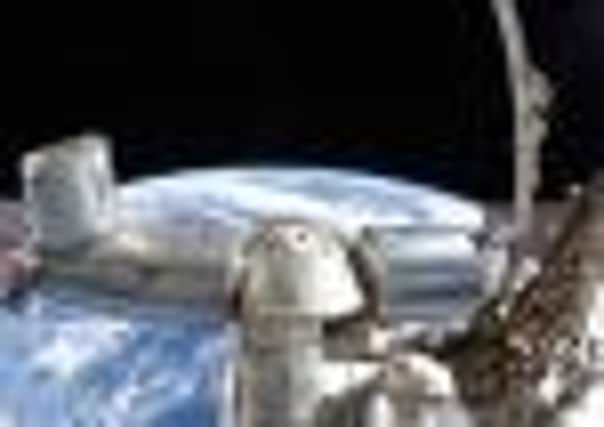Why space is now the place after an epic leap of faith


Last month, Felix Baumgartner jumped from the edge of space and into the record books.
The Austrian adventurer became the first skydiver to travel faster than the speed of sound when he leapt out of a balloon 24 miles above the earth. More than 8m people watched his astonishing freefall via a live internet feed on Google’s YouTube site, making it the largest simultaneous viewing audience in the website’s history.
Advertisement
Hide AdAdvertisement
Hide AdIt wasn’t quite Neil Armstrong’s epoch-making moon landing which was watched by more than 500m people back in 1969, but it did capture a similar sense of awe and wonder at the human ability to push ourselves beyond the limits of what is thought possible.
It also tapped into a renewed fascination with space exploration that seems to have been growing in past couple of years. In August, scientists were celebrating after the US space agency successfully landed a huge robot rover on Mars. The one-tonne vehicle, known as Curiosity, is only three months into its two-year mission to look for evidence that the red planet may once have supported life and has already turned up evidence that water once flowed there.
Curiosity’s success has been a huge feather in its cap for Nasa, and with space science now seemingly back on the agenda George Osborne has pledged to increase Britain’s contribution to the European Space Agency (ESA) over the next five years. This new commitment could see space spending via the ESA rise from around £170m to as much as £240m per year.
At present the UK space sector, which focuses on satellite technology, is worth around £9bn a year to the economy. It is also growing at more than eight per cent a year and, speaking to leading scientists at the Royal Institution in London last week, the Chancellor said the aim is to create a £30bn industry by 2030. “We are now at a watershed where space is transitioning from a celebration of science endeavour into a capability that impacts on our everyday lives,” he said.
Advertisement
Hide AdAdvertisement
Hide AdScience minister David Willetts has called this a “step-change” in Britain’s involvement in European space science.
But while the Government is looking at the economic and technological benefits this has to offer, it is the prospect of space travel that is capturing people’s imagination in a way it perhaps hasn’t done since the 1960s.
Next month it will be 40 years since the launch of the last manned trip to the moon and during the intervening years the early promise offered by the Apollo moon landings slowly disappeared as the realm of science fiction left scientific reality trailing in its wake.
But over the past decade technological developments have made space travel and a manned mission to Mars not just a possibility, but a reality sooner or later.
Advertisement
Hide AdAdvertisement
Hide AdVirgin Galactic, Sir Richard Branson’s space tourism venture, said last month that it hopes to launch passenger flights into space in the next two years. Around 500 people are understood to have bought tickets and flights are already underway, with rocket-powered tests scheduled to start next year.
Astronomer and writer Dr Heather Couper believes people are excited by space exploration again. “The whole thing is ramping up especially through private space flight,” she says. “I think we are seeing a worldwide initiative to get into space. People have seen the horrendous revelations about banking salaries and the cost to the economy and they are beginning to think that space exploration isn’t actually that expensive and that it’s something we should be aiming for.”
Space enthusiast Jonathan Levy says Britain has a big commercial space sector and a growing space science community that is boosting the economy. “There is a generation now that is more captivated by what space has to offer and it’s staring to capture the imagination again, we saw that with Baumgartner who attracted a huge audience for his jump. If you look back at the moon race in the 60s it captured people’s imagination and you can see it’s starting to fire the imagination of a new generation.”
He believes it is big business and the super rich that are leading the way as much as governments and space agencies. “We are seeing the start of a huge explosion of interest in space and it’s the entrepreneurs of the world, people like Richard Branson and his counterparts in the United States, who are leading the way when it comes to putting tourists into space. This was once the stuff of dreams, but not any more.”